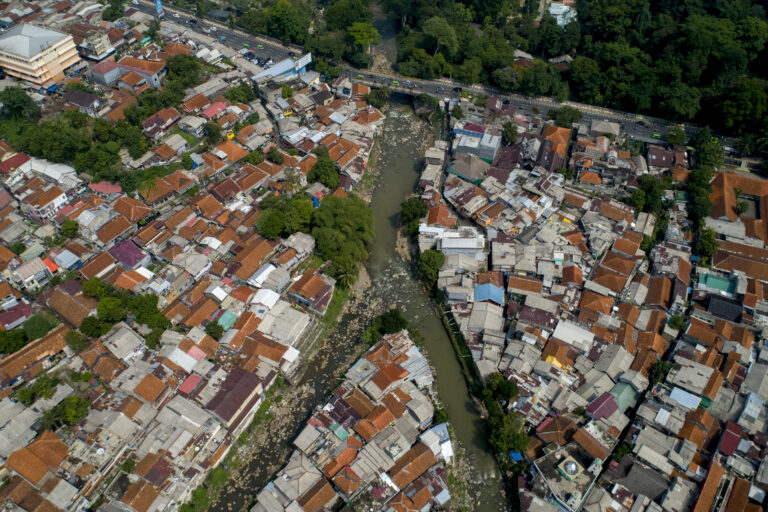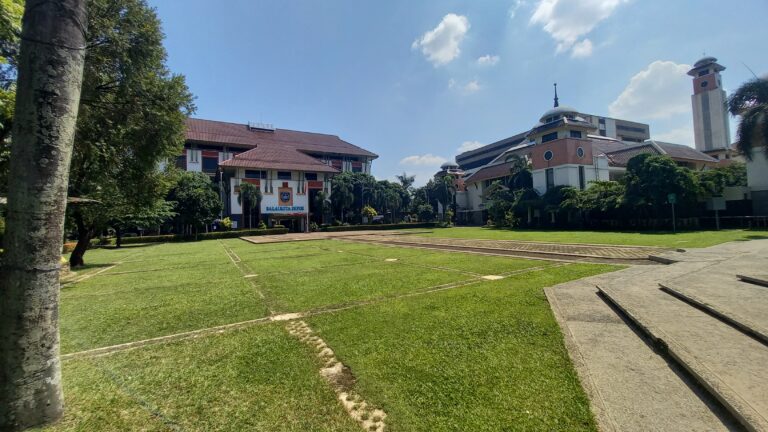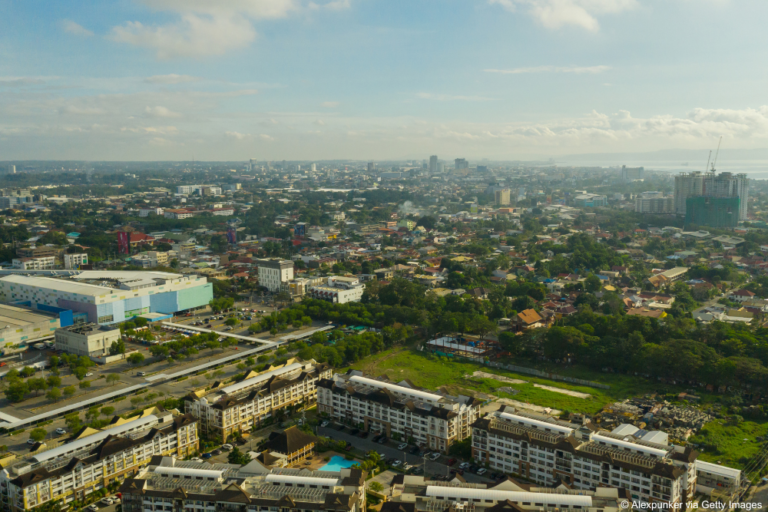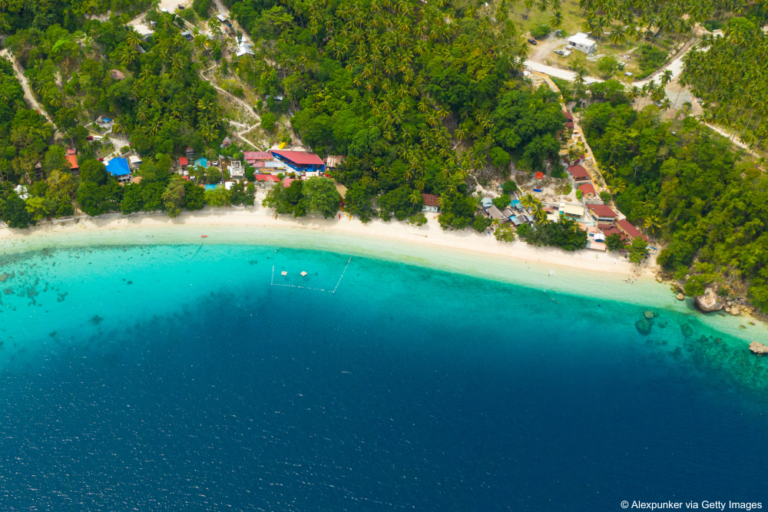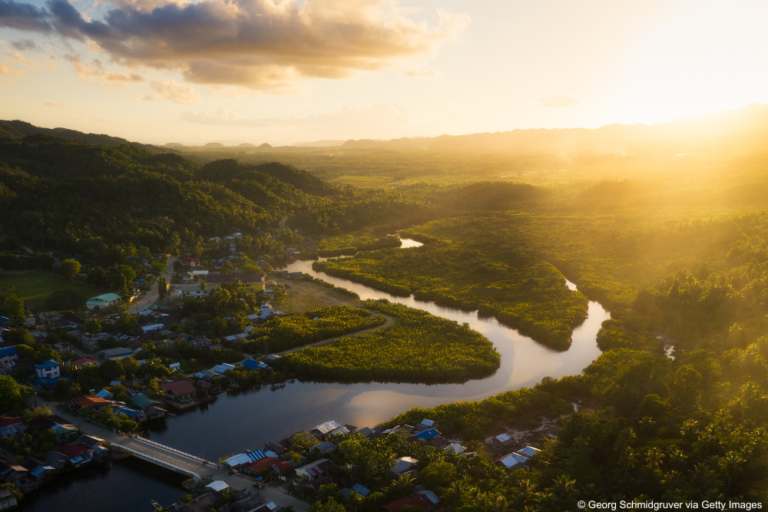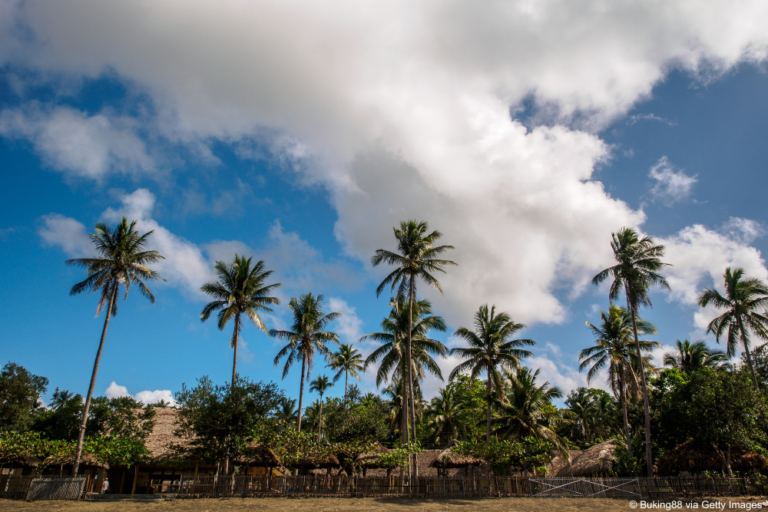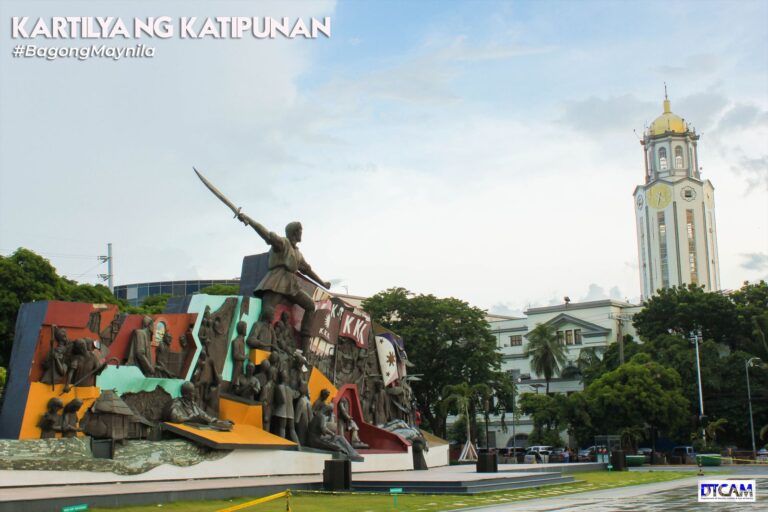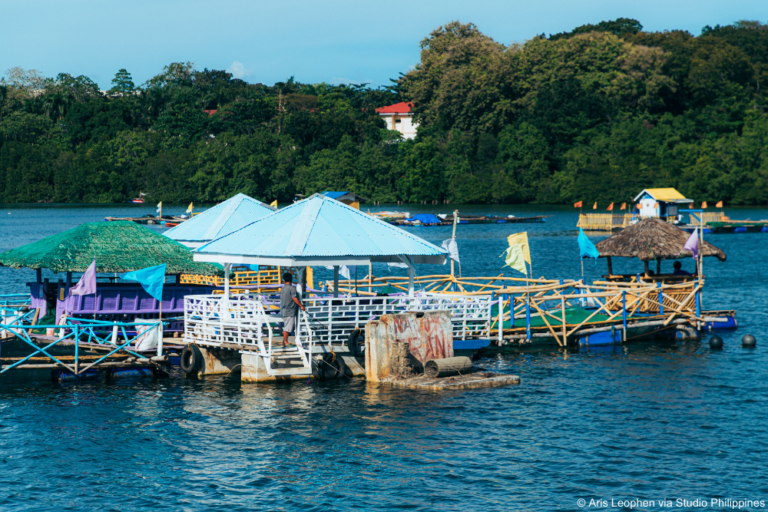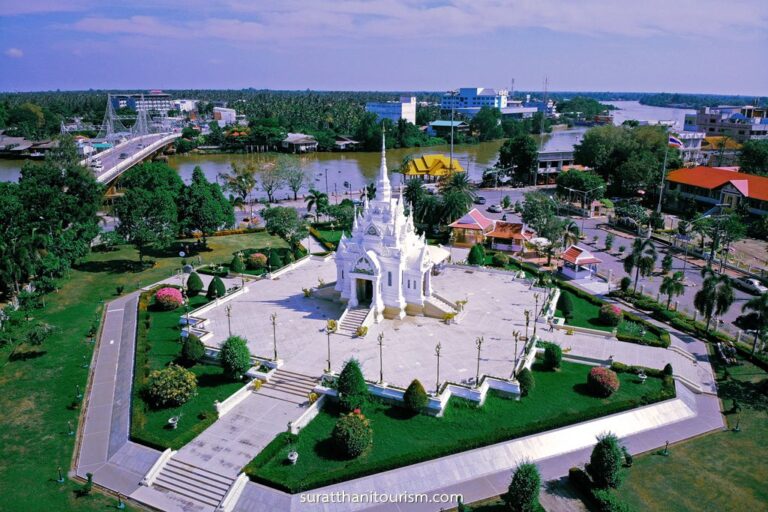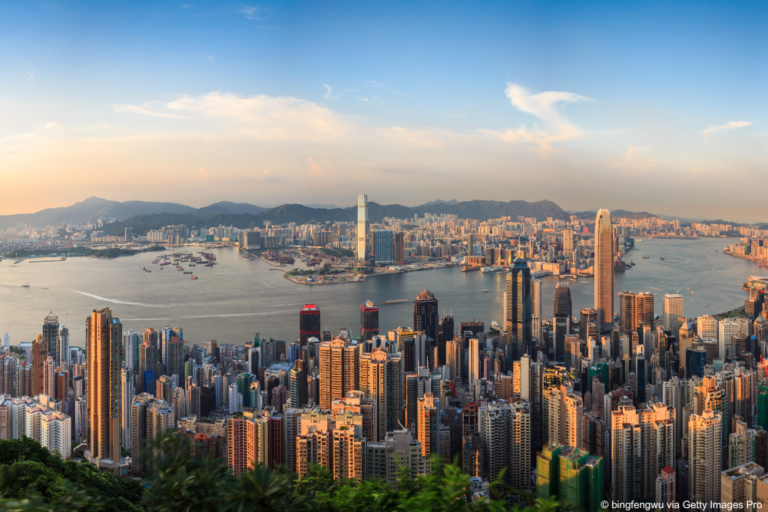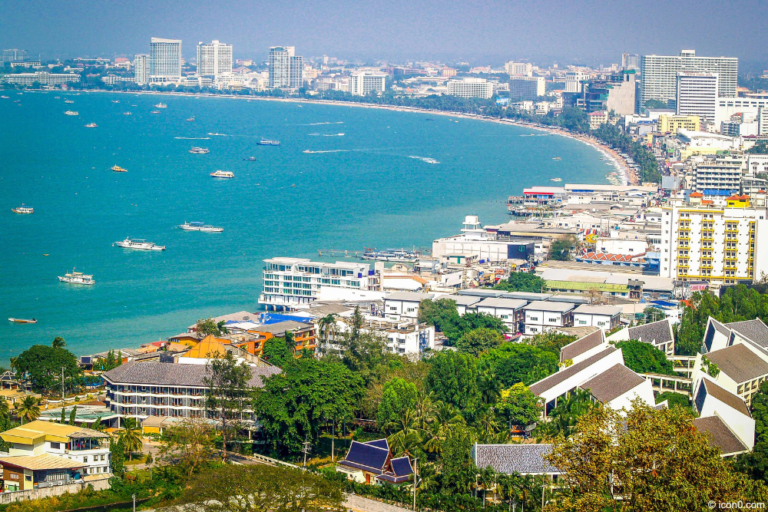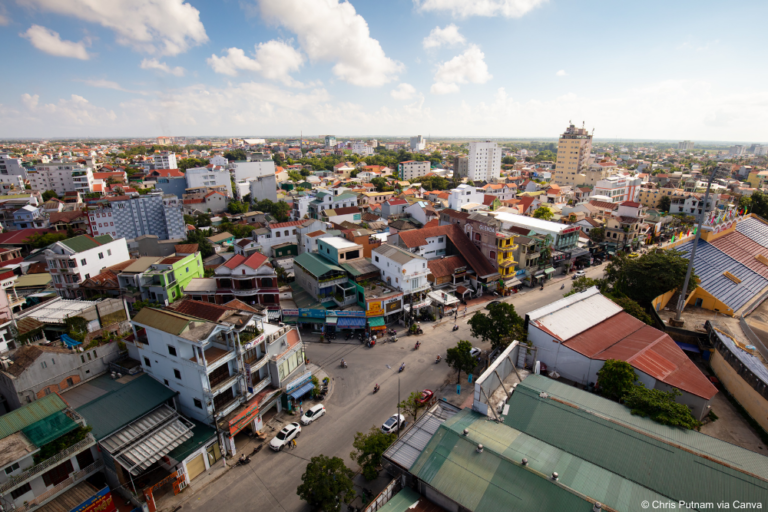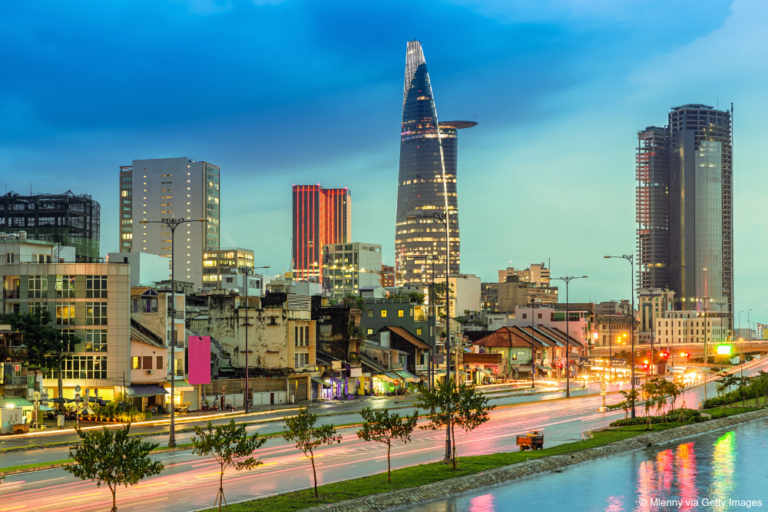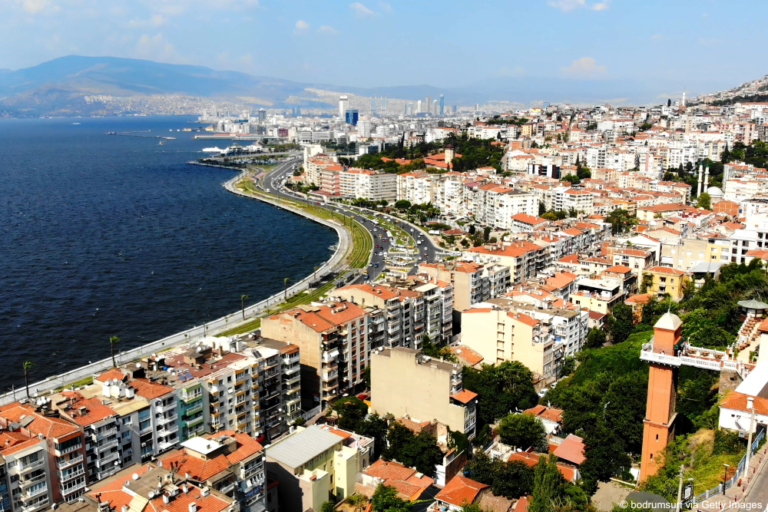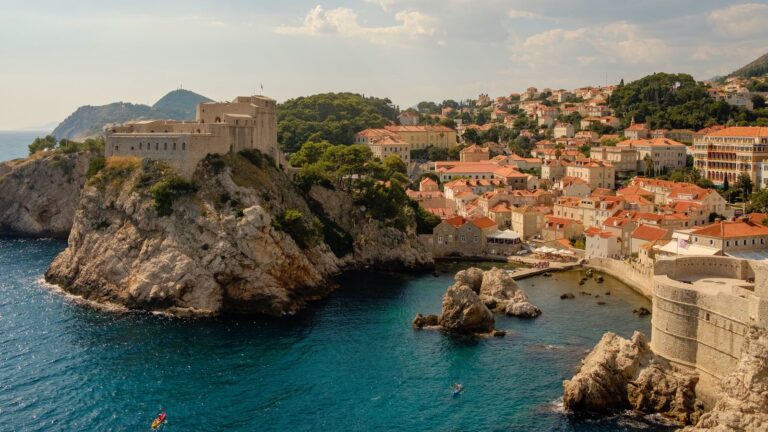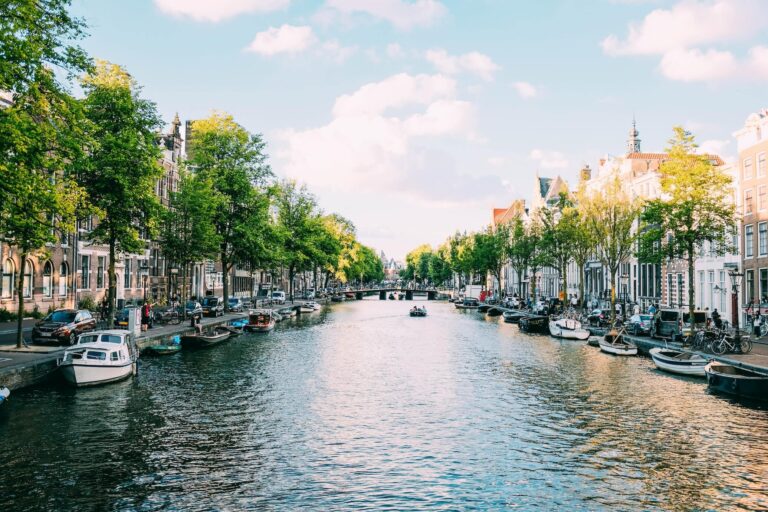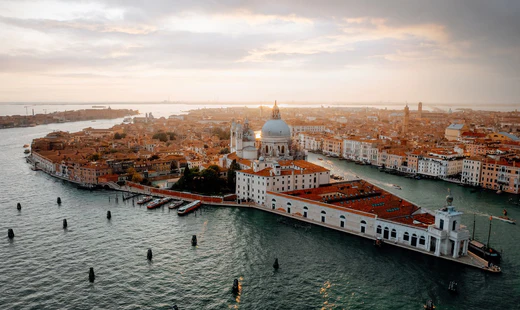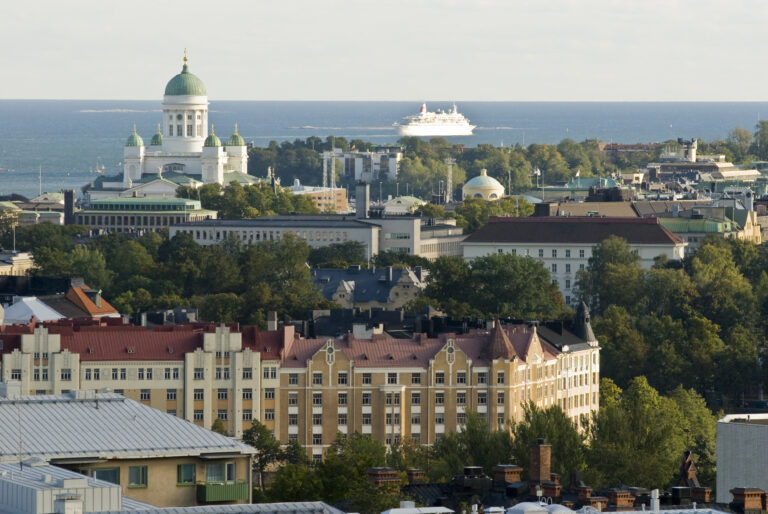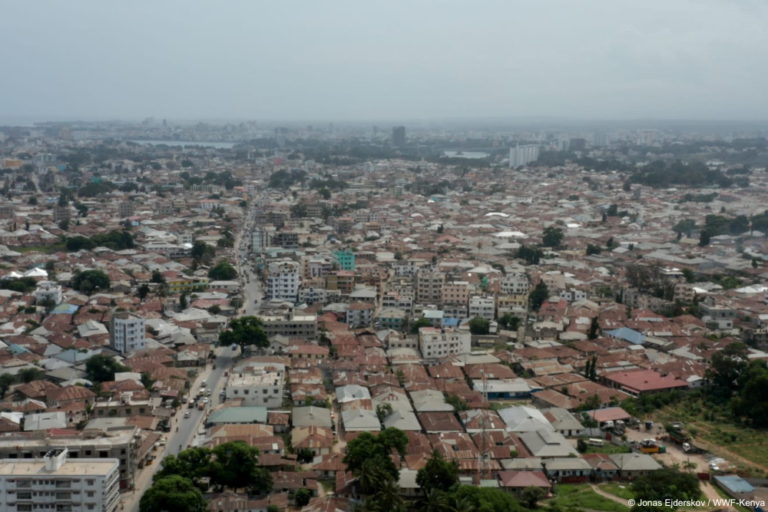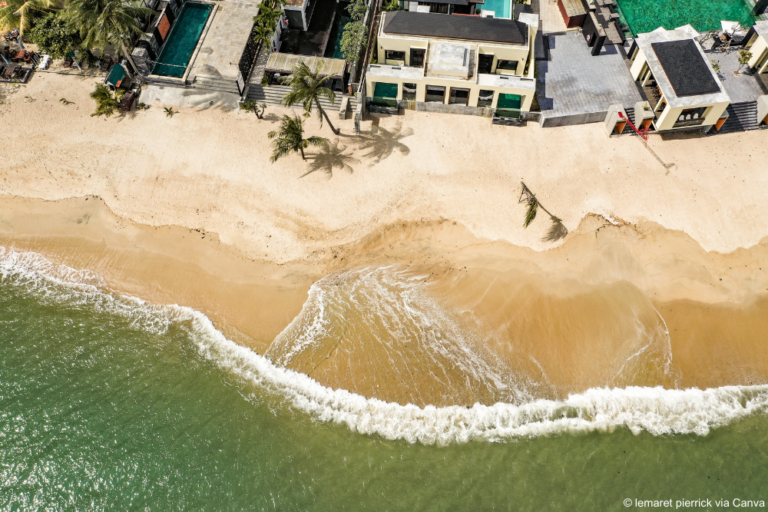Surat Thani is a city in Amphoe Mueang Surat Thani, Surat Thani Province, southern Thailand. It is the capital of Surat Thani Province. The city has a population of 141,802 (2022) and an area of 68.97 square kilometers. The city’s population density is 2,056 inhabitants per square kilometer. Surat Thani is located near the mouth of the Tapi River on the Gulf of Thailand. The city offers no major tourist attractions in itself and is mainly known to tourists as the jumping-off point to Ko Samui, Ko Tao, and Ko Pha Ngan. It is the regional commercial center, with a seaport dealing in the main products of the province, rubber and coconuts. Surat Thani aims to be a “livable and sustainable city,” focusing on nine aspects: Gastronomy, Cleanliness, Convenience, Tourism, Health, happiness, and well-being; safety; education; and tradition.
Surat Thani city currently generates 63,145 tons of solid waste per year which is the highest waste generation of the 4 pilot cities of the Project in Thailand. The amount of waste collected is 60,924 ton/year, resulting in 2,221 tons retained in the environment per year. Only 7,732 tons/year are sorted for recovery in the formal waste collection system, while the remaining 53,192 tons/year is sent for final disposal at Tha Rong Chang subdistrict. There is a zero ton/day of recovered recyclable waste at the recovery facility.
As for plastic waste, the total plastic waste generation is 11,691 tons/year, of which formal collection accounts for 10,344 tons. The remaining 1,347 tons of unmanaged plastic can be separated into four categories. includes that which remains indefinitely on land (772 tons/year), and leaked into the water (476 tons/year; purple bar). The formal collection of 10,344 tons/year comprises the amount of waste sorted for recovery and the amount of disposed waste accounting for 1,016 tons/year and 9,328 tons/year, respectively.
The reason for such a high amount of plastic leakage in Surat Thani is mainly due to a lack of service coverage. In particular, the municipality has not been able to provide adequate collection services to 3 villages that are situated in the peri-urban area, namely Ban Hua Laem, Hat Ta Yuang, Klong Cha Nak. The villagers still rely on open burning as the main method of waste disposal. There is hence an urgent need to address these hotspots of leakage in Surat Thani. Additionally, a minority of residents still practice illegal dumping in unoccupied lands, direct dumping into rivers and canals, or open burning. Behavioural change is thus key to minimize the leakage of plastic pollution.
As a result of these waste issues in order to develop numerous initiatives, Surat Thani Municipality joined the Plastic Smart Cities project and signed a declaration of intent. as part of the initiative to decrease plastic waste by 30% through 2025
As a result of these waste issues in order to develop numerous initiatives, Surat Thani Municipality joined the Plastic Smart Cities project and signed a declaration of intent. as part of the initiative to decrease plastic waste by 30% through 2025
1. Plastic Waste Prevention
- Educate local environmental protection volunteers and senior citizen club members on knowledge about plastic waste from life cycle concept, relation to climate change, type of plastics and different methods for management of end-of-life plastics. They will become trainers to help the City create awareness among the general public as well as the business community to change behavior and attitudes about the way people consume resources and generate waste.
- Request restaurants, hotels, shopping malls, etc. to stop using single-use plastics (SUPs) by stipulating in the permits or enter into agreement by signing an MOU with these establishments to reduce SUPs. The City may introduce Zero Plastic Waste criteria for café and restaurants and provide certificates or awards to those who pass the criteria
- Ask for cooperation from all levels of educational institutions and religious places to 1) reduce single-use plastics (SUPs) by stop providing SUPs for sit-in customers or visitors or stop providing SUPs free of charge, and 2) install water coolers or filtered water dispensers to reduce bottled water consumption.
- Seek alternatives to SUPs used in food delivery services. Triffin carriers, biomass-based containers and cutlery and deposit-refund plastic containers may be promoted.
- Produce comprehensive series of contents with the focus on reduction and prevention of plastic use with easy-to-understand graphics and animations. Launch the contents through existing channels including printed media, community speakers and signboards and all popular social media.
- Study Pay-As-You-Throw or Unit-based pricing scheme for municipal waste collection from households.
2. Plastic Waste Collection
- Study feasibility of collection improvement by introducing separation at source for both households and commercial establishments and a new collection truck fleet or a new collection schedule, that ensures the separate collection of the pre-sorted waste. Ideally, only the non-organic and non-recyclable fraction will be transported to the disposal site, whereas efforts will be made to recover the rest of the waste.
- Extend collection coverage to unserved areas of the city by working with the relevant communities to identify feasible and cost-efficient solutions including arranging waste banks (operated by local environmental protection volunteers) or support existing junk shops to be a drop point for collection of non- or low-value plastic waste and cooperate with shopping malls to set up additional drop points for these plastics.
- Study pilot riverine garbage trap and waste collection boat to provide a basis for budget planning and expansion of coverage area.
- Renovate the transfer station or provide a new storage facility for the collection of special waste types such as construction and demolition waste, garden waste, bulky waste and electronic waste.
3. Plastic Reuse and Recycling
- Establish partnership with business and industry through their CSR, ESG or waste exchange program to support circular economy. The City will encourage business and industry to implement a voluntary EPR program to recover plastic packaging waste.
- Establish partnership with Waste-to-Energy facilities or cement kilns in the Southern region to accept non-recyclable plastics (e.g., multi-layer packaging) for thermal recovery. Improve existing collection mechanisms such as Saleng and junk shop to accept this waste stream.
- Study feasibility to invest in modern waste sorting infrastructure and equipment. With source separation and segregated waste utilization, the mixed waste contains recyclable contents that can be further sorted using material separation technology before final disposal.
- Study feasibility to invest in food waste utilization such as biogas production, composting or mixed methods. Treatment of food waste instead of disposal will convince households and commercial establishments to segregate food waste from other waste. Removing of food waste at source will also make plastic waste cleaner and more suitable to be recycled.
- Formulate local ordinance on mandatory waste segregation based on the Act on the Maintenance of the Cleanliness and. Orderliness of the Country, revised in 2017. The ordinance may first target at commercial establishments.
4. Other focus areas and measures
- Establish Surat Thani Municipality Eco Learning Center. The center will cover a wide range of knowledge from prevention, reduction, reuse, recycling, disposal and impacts of waste on climate change and biodiversity. Visitors will be able to practice waste management and utilization techniques.
- Promote eco-tourism in river-side communities where residents have to keep their communities clean and free of riverine litters. Youth and elderly may become tour guide for their own communities.
- Improve existing dumpsite to become more sanitary. Cooperate with the local administration and the company in charge of the disposal site to take training courses related to landfill operation. The trainees may also include the City’s staff and officials from the Ministry of Natural Resources and Environment in Surat Thani Province.
Explore More Cities
SURAT THANI
Surat Thani currently generates 63,145 tons of solid waste per year, which is the highest waste generation of the 4 pilot cities of the Project in Thailand.
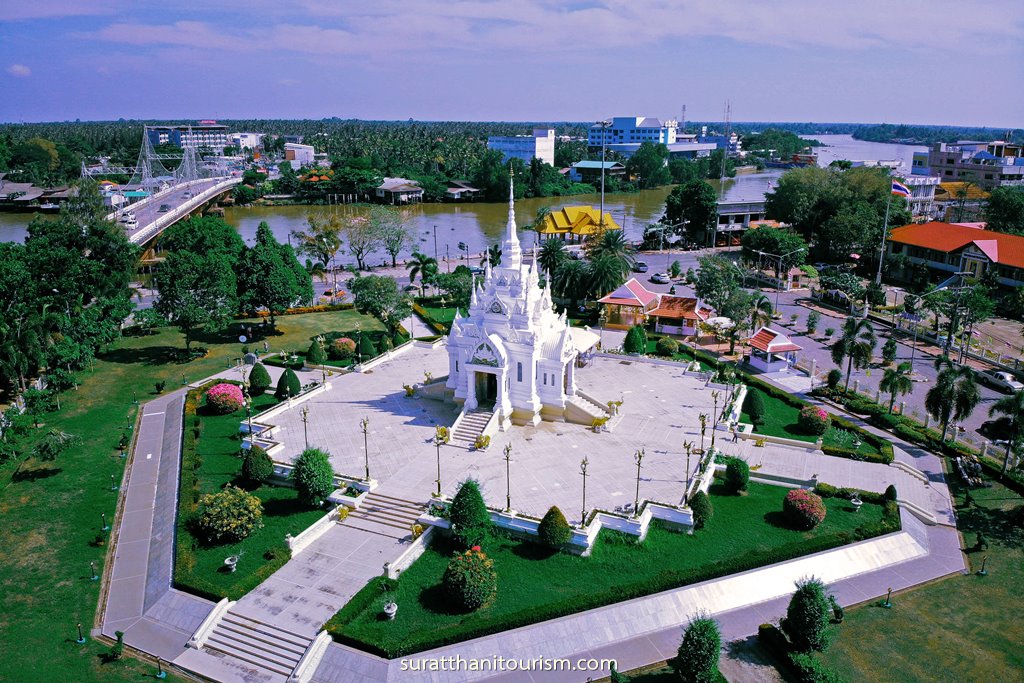
CITY: Surat Thani
COUNTRY: Thailand
POPULATION: 141,802
SIGNED DECLARATION: December 19, 2022
MAYOR: Prasert Boonprasop
CITY CONTACT: Tel. (+66) 0-7727-2513 / Email: info@suratcity.go.th
OFFICIAL WEBSITE: suratcity.go.th - เทศบาลนครสุราษฎร์ธานี
CONNECT: Facebook
About Surat Thani
Surat Thani is a city in Amphoe Mueang Surat Thani, Surat Thani Province, southern Thailand. It is the capital of Surat Thani Province. The city has a population of 141,802 (2022) and an area of 68.97 square kilometers. The city's population density is 2,056 inhabitants per square kilometer. Surat Thani is located near the mouth of the Tapi River on the Gulf of Thailand. The city offers no major tourist attractions in itself and is mainly known to tourists as the jumping-off point to Ko Samui, Ko Tao, and Ko Pha Ngan. It is the regional commercial center, with a seaport dealing in the main products of the province, rubber and coconuts. Surat Thani aims to be a "livable and sustainable city," focusing on nine aspects: Gastronomy, Cleanliness, Convenience, Tourism, Health, happiness, and well-being; safety; education; and tradition.
Biggest Waste Generator in the PSC Pilot Program
Surat Thani city currently generates 63,145 tons of solid waste per year which is the highest waste generation of the 4 pilot cities of the Project in Thailand. The amount of waste collected is 60,924 ton/year, resulting in 2,221 tons retained in the environment per year. Only 7,732 tons/year are sorted for recovery in the formal waste collection system, while the remaining 53,192 tons/year is sent for final disposal at Tha Rong Chang subdistrict. There is a zero ton/day of recovered recyclable waste at the recovery facility.
As for plastic waste, the total plastic waste generation is 11,691 tons/year, of which formal collection accounts for 10,344 tons. The remaining 1,347 tons of unmanaged plastic can be separated into four categories. includes that which remains indefinitely on land (772 tons/year), and leaked into the water (476 tons/year; purple bar). The formal collection of 10,344 tons/year comprises the amount of waste sorted for recovery and the amount of disposed waste accounting for 1,016 tons/year and 9,328 tons/year, respectively.
Surat Thani's Waste Problem
The reason for such a high amount of plastic leakage in Surat Thani is mainly due to a lack of service coverage. In particular, the municipality has not been able to provide adequate collection services to 3 villages that are situated in the peri-urban area, namely Ban Hua Laem, Hat Ta Yuang, Klong Cha Nak. The villagers still rely on open burning as the main method of waste disposal. There is hence an urgent need to address these hotspots of leakage in Surat Thani. Additionally, a minority of residents still practice illegal dumping in unoccupied lands, direct dumping into rivers and canals, or open burning. Behavioural change is thus key to minimize the leakage of plastic pollution.
Surat Thani with Plastic Smart Cities
As a result of these waste issues in order to develop numerous initiatives, Surat Thani Municipality joined the Plastic Smart Cities project and signed a declaration of intent. as part of the initiative to decrease plastic waste by 30% through 2025
1. Plastic Waste Prevention
- Educate local environmental protection volunteers and senior citizen club members on knowledge about plastic waste from life cycle concept, relation to climate change, type of plastics and different methods for management of end-of-life plastics. They will become trainers to help the City create awareness among the general public as well as the business community to change behavior and attitudes about the way people consume resources and generate waste.
- Request restaurants, hotels, shopping malls, etc. to stop using single-use plastics (SUPs) by stipulating in the permits or enter into agreement by signing an MOU with these establishments to reduce SUPs. The City may introduce Zero Plastic Waste criteria for café and restaurants and provide certificates or awards to those who pass the criteria
- Ask for cooperation from all levels of educational institutions and religious places to 1) reduce single-use plastics (SUPs) by stop providing SUPs for sit-in customers or visitors or stop providing SUPs free of charge, and 2) install water coolers or filtered water dispensers to reduce bottled water consumption.
- Seek alternatives to SUPs used in food delivery services. Triffin carriers, biomass-based containers and cutlery and deposit-refund plastic containers may be promoted.
- Produce comprehensive series of contents with the focus on reduction and prevention of plastic use with easy-to-understand graphics and animations. Launch the contents through existing channels including printed media, community speakers and signboards and all popular social media.
- Study Pay-As-You-Throw or Unit-based pricing scheme for municipal waste collection from households.
2. Plastic Waste Collection
- Study feasibility of collection improvement by introducing separation at source for both households and commercial establishments and a new collection truck fleet or a new collection schedule, that ensures the separate collection of the pre-sorted waste. Ideally, only the non-organic and non-recyclable fraction will be transported to the disposal site, whereas efforts will be made to recover the rest of the waste.
- Extend collection coverage to unserved areas of the city by working with the relevant communities to identify feasible and cost-efficient solutions including arranging waste banks (operated by local environmental protection volunteers) or support existing junk shops to be a drop point for collection of non- or low-value plastic waste and cooperate with shopping malls to set up additional drop points for these plastics.
- Study pilot riverine garbage trap and waste collection boat to provide a basis for budget planning and expansion of coverage area.
- Renovate the transfer station or provide a new storage facility for the collection of special waste types such as construction and demolition waste, garden waste, bulky waste and electronic waste.
3. Plastic Reuse and Recycling
- Establish partnership with business and industry through their CSR, ESG or waste exchange program to support circular economy. The City will encourage business and industry to implement a voluntary EPR program to recover plastic packaging waste.
- Establish partnership with Waste-to-Energy facilities or cement kilns in the Southern region to accept non-recyclable plastics (e.g., multi-layer packaging) for thermal recovery. Improve existing collection mechanisms such as Saleng and junk shop to accept this waste stream.
- Study feasibility to invest in modern waste sorting infrastructure and equipment. With source separation and segregated waste utilization, the mixed waste contains recyclable contents that can be further sorted using material separation technology before final disposal.
- Study feasibility to invest in food waste utilization such as biogas production, composting or mixed methods. Treatment of food waste instead of disposal will convince households and commercial establishments to segregate food waste from other waste. Removing of food waste at source will also make plastic waste cleaner and more suitable to be recycled.
- Formulate local ordinance on mandatory waste segregation based on the Act on the Maintenance of the Cleanliness and. Orderliness of the Country, revised in 2017. The ordinance may first target at commercial establishments.
4. Other focus areas and measures
- Establish Surat Thani Municipality Eco Learning Center. The center will cover a wide range of knowledge from prevention, reduction, reuse, recycling, disposal and impacts of waste on climate change and biodiversity. Visitors will be able to practice waste management and utilization techniques.
- Promote eco-tourism in river-side communities where residents have to keep their communities clean and free of riverine litters. Youth and elderly may become tour guide for their own communities.
- Improve existing dumpsite to become more sanitary. Cooperate with the local administration and the company in charge of the disposal site to take training courses related to landfill operation. The trainees may also include the City’s staff and officials from the Ministry of Natural Resources and Environment in Surat Thani Province.
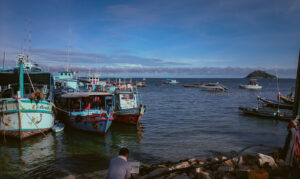
1. Plastic Waste Prevention
- Educate local environmental protection volunteers and senior citizen club members on knowledge about plastic waste from life cycle concept, relation to climate change, type of plastics and different methods for management of end-of-life plastics. They will become trainers to help the City create awareness among the general public as well as the business community to change behavior and attitudes about the way people consume resources and generate waste.
- Request restaurants, hotels, shopping malls, etc. to stop using single-use plastics (SUPs) by stipulating in the permits or enter into agreement by signing an MOU with these establishments to reduce SUPs. The City may introduce Zero Plastic Waste criteria for café and restaurants and provide certificates or awards to those who pass the criteria
- Ask for cooperation from all levels of educational institutions and religious places to 1) reduce single-use plastics (SUPs) by stop providing SUPs for sit-in customers or visitors or stop providing SUPs free of charge, and 2) install water coolers or filtered water dispensers to reduce bottled water consumption.
- Seek alternatives to SUPs used in food delivery services. Triffin carriers, biomass-based containers and cutlery and deposit-refund plastic containers may be promoted.
- Produce comprehensive series of contents with the focus on reduction and prevention of plastic use with easy-to-understand graphics and animations. Launch the contents through existing channels including printed media, community speakers and signboards and all popular social media.
- Study Pay-As-You-Throw or Unit-based pricing scheme for municipal waste collection from households.
2. Plastic Waste Collection
- Study feasibility of collection improvement by introducing separation at source for both households and commercial establishments and a new collection truck fleet or a new collection schedule, that ensures the separate collection of the pre-sorted waste. Ideally, only the non-organic and non-recyclable fraction will be transported to the disposal site, whereas efforts will be made to recover the rest of the waste.
- Extend collection coverage to unserved areas of the city by working with the relevant communities to identify feasible and cost-efficient solutions including arranging waste banks (operated by local environmental protection volunteers) or support existing junk shops to be a drop point for collection of non- or low-value plastic waste and cooperate with shopping malls to set up additional drop points for these plastics.
- Study pilot riverine garbage trap and waste collection boat to provide a basis for budget planning and expansion of coverage area.
- Renovate the transfer station or provide a new storage facility for the collection of special waste types such as construction and demolition waste, garden waste, bulky waste and electronic waste.
3. Plastic Reuse and Recycling
- Establish partnership with business and industry through their CSR, ESG or waste exchange program to support circular economy. The City will encourage business and industry to implement a voluntary EPR program to recover plastic packaging waste.
- Establish partnership with Waste-to-Energy facilities or cement kilns in the Southern region to accept non-recyclable plastics (e.g., multi-layer packaging) for thermal recovery. Improve existing collection mechanisms such as Saleng and junk shop to accept this waste stream.
- Study feasibility to invest in modern waste sorting infrastructure and equipment. With source separation and segregated waste utilization, the mixed waste contains recyclable contents that can be further sorted using material separation technology before final disposal.
- Study feasibility to invest in food waste utilization such as biogas production, composting or mixed methods. Treatment of food waste instead of disposal will convince households and commercial establishments to segregate food waste from other waste. Removing of food waste at source will also make plastic waste cleaner and more suitable to be recycled.
- Formulate local ordinance on mandatory waste segregation based on the Act on the Maintenance of the Cleanliness and. Orderliness of the Country, revised in 2017. The ordinance may first target at commercial establishments.
4. Other focus areas and measures
- Establish Surat Thani Municipality Eco Learning Center. The center will cover a wide range of knowledge from prevention, reduction, reuse, recycling, disposal and impacts of waste on climate change and biodiversity. Visitors will be able to practice waste management and utilization techniques.
- Promote eco-tourism in river-side communities where residents have to keep their communities clean and free of riverine litters. Youth and elderly may become tour guide for their own communities.
- Improve existing dumpsite to become more sanitary. Cooperate with the local administration and the company in charge of the disposal site to take training courses related to landfill operation. The trainees may also include the City’s staff and officials from the Ministry of Natural Resources and Environment in Surat Thani Province.
Explore other cities in Thailand

Geocoding Error Occured.
Tried to Geocode:
Error Type:
Please be sure to follow the tutorial on how to setup the Google APIs required for the Advanced Google Map Widget.
Google Map API Key Tutorial

